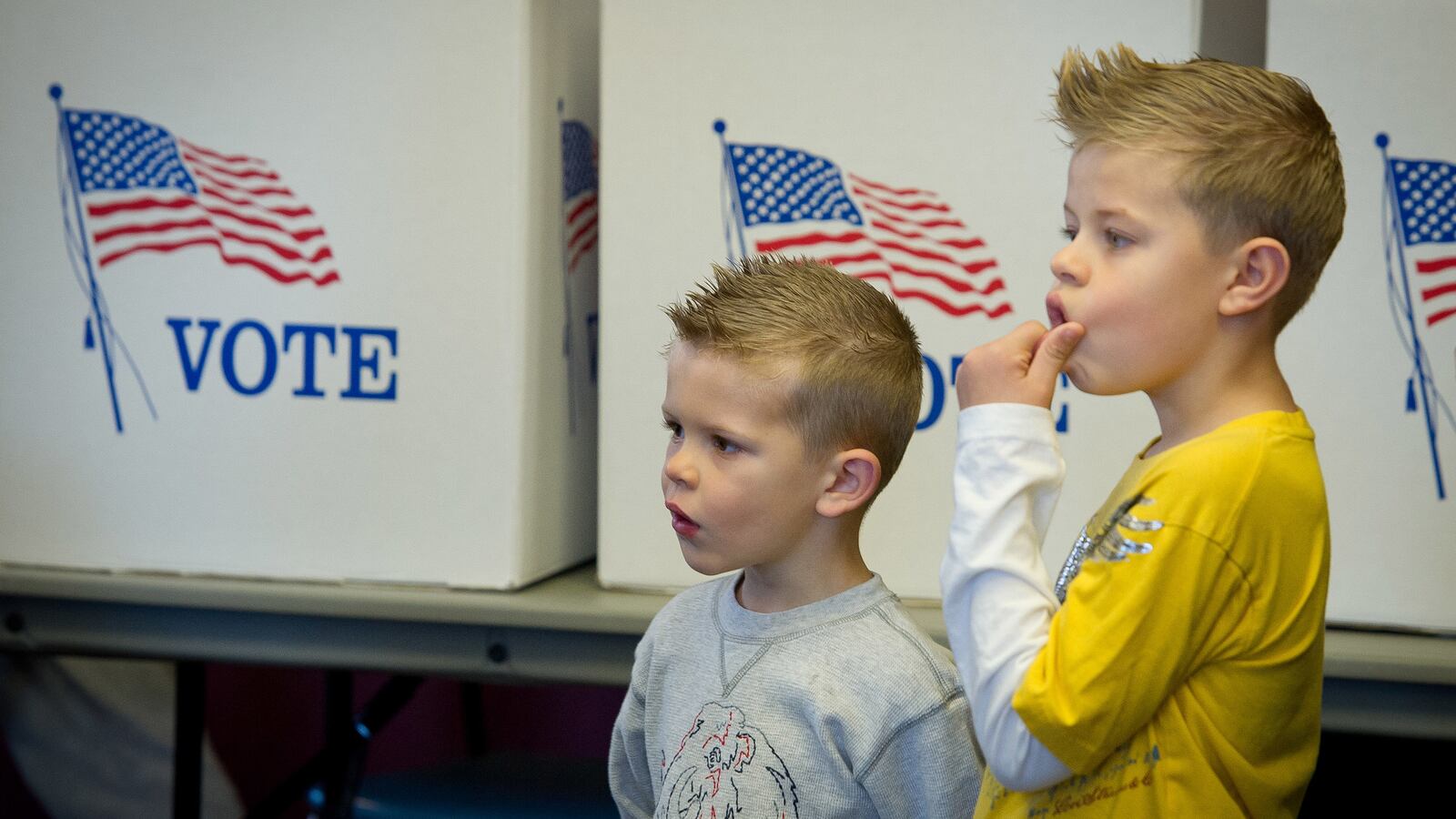Wednesday’s newly released Harvard University Institute of Politics survey of Americans under the age of 30 suggests that GOP just might be on the road to recovery, though they’ve still got a long way to go.
For years, young voters in America have been unenthusiastic about, if not outright hostile toward, the GOP. The roots of the breakup between so-called “Millennial” voters—those born after 1980—and the Republican Party go back to the 2006 midterms. It was in that wave election, which elevated Nancy Pelosi to the role of Speaker of the House, that Republicans performed worse among young voters than either party had performed among any age group, going back to the 1980s. While the presidential election of 2008 and Obama’s campaign of “Hope and Change” are what most people associate with the rise of the Democratic young electorate, the seeds of the leftward shift had already been planted; Obama needed only to capitalize on the moment.
This midterm, while unlikely to be a Millennial-led blowout for the GOP, may hold the seeds for a Republican Party eager to re-capture a share of the youth vote in 2016 and beyond.
Far from the enormous double-digit margins Democrats have held over their Republican adversaries in the youth vote, the Harvard poll shows only half of young people preferring a Congress controlled by Democrats, while 43 percent say they’d prefer a Republican Congress. That’s among young people overall, not just those who are registered to vote and who plan to turn out; among those who say they are likely to vote, Republicans actually hold an advantage with young people, with 51 percent saying they’d like Republicans running the show. (The Harvard researchers note that this is even an improvement over how Republicans stood with young people in the 2010 GOP wave election; during that year, Republicans still trailed among these likely voters by 12 points.)
Young voters are ticked off and tuned out. Only 18 percent say they consider themselves politically engaged, and only 6 percent say they closely follow news about national politics. Only 15 percent think the country is on the right track. Majorities disapprove of the job President Obama is doing, as well as the job being done be Republicans and Democrats in Congress. Issue by issue, roughly six out of ten young people disapprove of the President’s performance handling things like health care, the budget deficit, and immigration. When Democrats say young people support what they’ve done with the last six years, young people disagree.
And while it is certainly true that the GOP is not loved by very many young people, it is an astonishing failure on the part of the Democrats that their performance on the ballot in the Harvard survey is so underwhelming, given that fewer than one out of four young people actually approve of the job Republicans are doing in Congress. That Republicans have pulled to nearly even with Democrats on questions like “which party do you trust more to handle the economy” is a remarkable turn of events from just four years ago. That 57 percent of young people still say they disapprove of the Affordable Care Act is devastating for Democrats who have relied on that law as the crux of their sales pitch to the Millennial generation.
Sure, this has been an election where young voters have not been front and center. Politicians and political parties see how the youth vote drops off significantly in midterm years and focus their efforts elsewhere. In 2010, young voters only made up 11 percent of the electorate. Disgust and frustration with both parties leaves young people feeling like there’s no point to voting, and so a big surge in youth turnout is unlikely. Yet in contests that will be decided by razor-thin margins, even a few disillusioned young voters who came out for Obama in 2012 but are stay home next week will make all the difference.
More interesting will be what Republicans do with this opening. Remember, young voters have not warmed up to the GOP. They may no longer be the exclusive property of the Democratic Party, but they’re not signing up en masse for the Republican Party either. Generational divides over issues like the same-sex marriage may not be not defining this election, but they certainly aren’t going away, either.
If the GOP hopes to turn the tables and pick up ground in the 2016 election, they have to capitalize on the opening they’ve been given by showing they can do more than stop the President. They’ve got to explain what the Republican vision is for the future of America and why that’s something worth voting for. Young Americans put their hopes in Democrats and wound up disappointed. It’s now up to Republicans to show them a different path.






